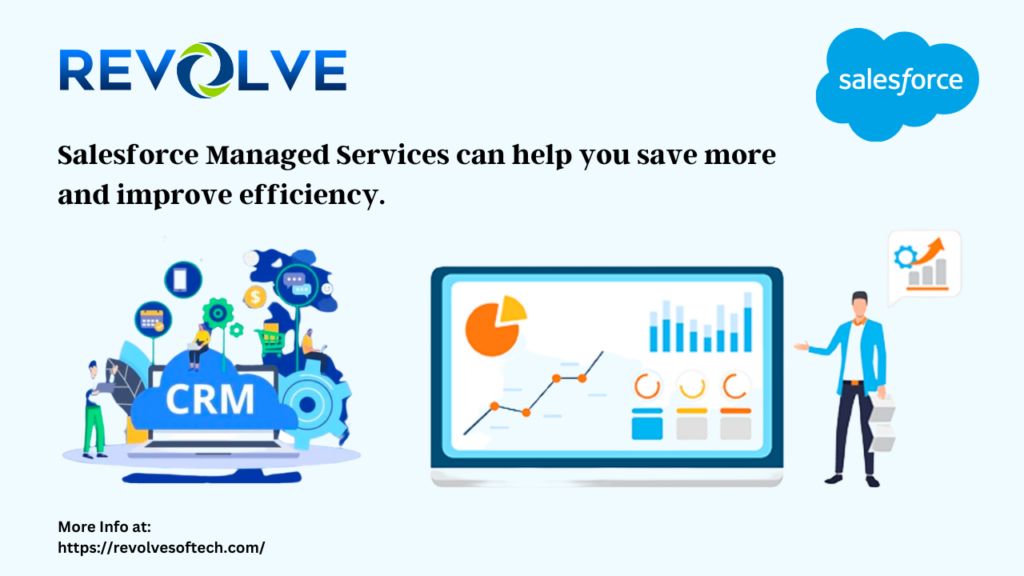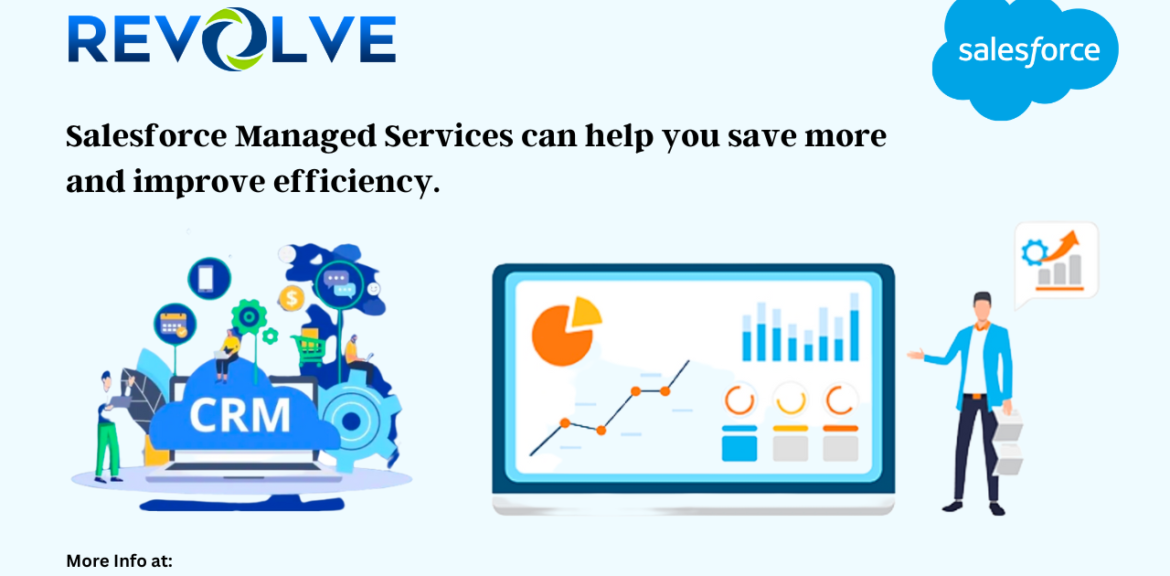
Salesforce is a powerful cloud-based CRM tool used by businesses all over the world, including start-ups, small and medium-sized businesses, and Fortune 500 corporations. It takes a customer-centric approach and evolves in response to market developments. Enterprises can align different departments to create more value for their customers and partners; however, Salesforce implementation alone will not suffice. CRM must be tailored to your specific operational requirements, business models, and objectives.
Furthermore, it should be continuously optimized and upgraded to keep up with an enterprise’s growing phase. Failure to do so may reduce the effectiveness of your integrations, impede performance and raise security concerns, obstruct the realisation of benefits, or introduce compliance challenges without your knowledge.
However, not every business has the capacity to constantly optimise its Salesforce ecosystem—hence, they can take advantage of Salesforce managed services, which entail hiring Salesforce partners to provide comprehensive support for your business by implementing, customizing, and managing Salesforce CRM. They have all of the necessary capabilities and a talent pool with Salesforce expertise to provide full-service implementation, integration, development, customization, support, and management. In a nutshell, these managed service providers manage the backend/technical processes that ensure Salesforce works optimally for your organization.
The managed services model provides continuous maintenance and support, making it more logical than hiring full-time talent with an unproven track record at high costs. The first also provides incremental performance capabilities and fail-safe security, as well as support for your expanding business needs.
A Quick Overview of Salesforce Managed Services
Simply put, Salesforce managed services include a wide range of services such as consultation, implementation, development, customization, support, and management. These organizations assist with strategic resource allocation for improved performance, as well as proactive identification and resolution of any potential issues before they impact business workflows or customer experiences. Enterprises can easily access fully managed Salesforce solutions to improve CRM performance through regular review, optimization, extending capabilities, and upgrading to the latest versions.
Advantages of Implementing a Managed Services Model
Managed services providers ensure the stability of Salesforce solution implementation in the enterprise and, in turn, provide the following benefits:
1. Flexibility
Salesforce provides limitless solutions for various industries and domains, assisting various departments of an enterprise to perform at their peak. Each Salesforce solution includes a number of modules, each with a set of functionalities and features that businesses must identify, implement, and fully utilize.
The managed services team consists of consultants, developers, analysts, testers, and other experts from which businesses can select to ensure the success of their Salesforce solution implementation. The freedom to select technology and platform-specific pros produce outstanding results.
2. Coherent Strategy
Many Salesforce solutions fail as a result of poor strategy development, little to no leadership involvement, and a lack of defined processes. Salesforce-managed service providers develop integrated strategies that assist organizations in meeting long-term objectives.
Apart from keeping the sales staff focused on their sales operations and delivering results, the advice from a trusted Salesforce partner gives a big picture on how to use the Salesforce CRM systems strategically.
3. Get a Tailored Solution
Salesforce’s out-of-the-box solutions are a godsend to businesses; nevertheless, minor tweaks are occasionally required to make the solutions readily fit into the current system processes. This little modification aids in addressing the demands of both the company and the target user. In reality, some firms may tailor the solution at scale as if it were developed from the ground up to meet their specific requirements.
It needs a team of qualified specialists, which Salesforce partners can deliver. Managed service companies give the expertise to assist with customized development and implementation. Furthermore, the team supports rendering adjustments at any moment.
4. Cost-effective Alternative
Salesforce managed services companies have the necessary skills to build and install bespoke solutions while also offering Salesforce CRM support 24 hours a day, seven days a week. It reduces the need to invest money in staff recruitment, training, and retention, as well as getting rid of delayed onboarding. Businesses just have to pay for the services they use. Hence, organizations can bridge their skill, resource, and capability gaps without letting the operational expenditure spiral up.
5. Prompt Resolution of Issues
Managed service providers begin with a thorough grasp of the business aim and work diligently on the Salesforce deployment from the start. This allows them to continually monitor the CRM systems, allowing them to spot and correct mistakes in advance.
Furthermore, they make helpful advice to company stakeholders when they discover anything that can be improved after reviewing corporate operations and procedures with premium feature additions or plan upgrades.
6. Continuous Support
Salesforce is rapidly expanding to fulfill the ever-changing demands of its users and the market. There is also a requirement for an expert who is available around the clock, which Salesforce-managed service providers supply. 24*7 Salesforce CRM support ensures that professionals are keeping an eye on all processes, making adjustments on time and seamlessly, and providing prompt assistance when needed.
7. Optimum License Utilization
Companies use Salesforce products under a licensing model, where maintaining optimal license utilization is crucial to making the investment pay off—all of this is addressed by Salesforce managed services. They monitor license utilization, remove dormant user accounts, add people when licenses are available, and ban superfluous licenses.
In the End
Enterprises frequently neglect the value of utilizing Salesforce-managed services, but this proves to be their largest error. The managed services approach improves efficiency, productivity, and customer service delivery, among other benefits that cannot be overlooked.
Yet, selecting the correct Salesforce-managed service provider is a critical issue that must be carefully considered. To address their business-specific demands and optimize ROI, enterprises should engage with authorized Salesforce service providers who have specialized knowledge as well as experience. Remember that with the proper partner, businesses may prosper and expand.
